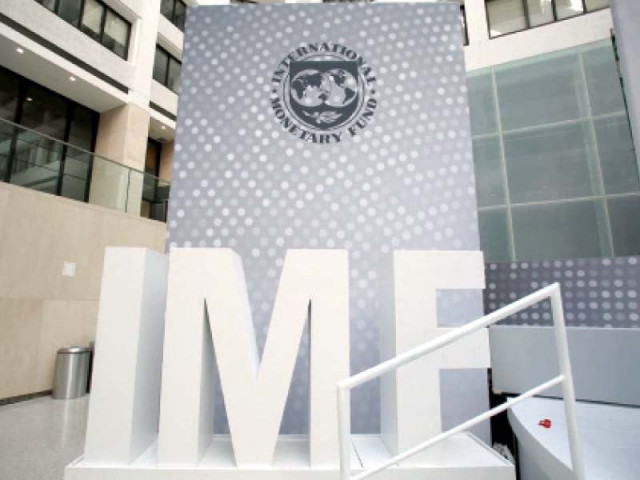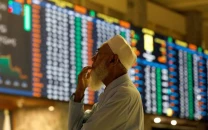Pakistan-IMF talks to begin today
Govt to ask lender to allow implementation of conditions over longer period

Pakistan, already hurt by the unfulfilled commitments made by foreign nations promising cash deposits worth $5 billion, will today (Tuesday) lock horns with the International Monetary Fund (IMF) in one of the toughest negotiation sessions ever to revive the $6.5 billion bailout package.
During the 10-day long talks, the government’s efforts will be focused on convincing the IMF to agree to a new plan that seeks to implement the outstanding stricter conditions over a longer period, a government functionary said on Monday.
The global lender, irritated by the callous approach of the successive governments, will seek immediate implementation of all actions points, irrespective of the cost to the nation that is already struggling under the pressure of a 25% inflation rate.
Pakistan is in a difficult economic situation and, by end of the IMF team’s visit, we hope that all the outstanding issues will be resolved, said Dr Aisha Pasha, the Minister of State for Finance, who is expected to lead the technical round of talks, starting today (Tuesday).
IMF Mission Chief, Nathan Porter, has already reached Islamabad, in a visit that is crucial for Pakistan to avoid default. Implementation of all the conditions, however, carries the risk of eroding the coalition government’s remaining political capital – provided the IMF does not budge from its stance.
According to finance ministry sources, the IMF has not yet responded to the new roadmap shared by Pakistan, showing that initial efforts have not been very successful. The Ministry of Finance will try its best to convince the IMF that all the pending actions cannot be implemented at once, they added.
While the ordinary man will be protected to some extent, circumstances suggest that all classes of society may have to bear the burden this time, proportionate to their income level, a senior finance ministry official said in a background briefing.
The measures that the IMF is asking in return for restoration of the programme – and to release the next loan tranche of $1.1 billion – include market-based exchange rate, lifting restrictions on imports, durable taxation measures and, above all, addressing the power sector arrears through an increase in tariffs.
“Our strategy will be that the fiscal gap that has surfaced against the primary budget deficit target agreed in June last year will be filled through a combination of increase in taxes, expenditure rationalisation and adjustment in tariffs,” said the senior official.
In an unprecedented move, the government let the rupee devalue by a record 17% or Rs39 per US dollar in just three days aimed at conceding to the IMF’s most hard-pressed demand. This, however, is not the end as there is more to come in the upcoming weeks. The price for petrol and high-speed diesel has been increased by Rs35 per litre, but sales tax has yet to be levied. An alternative to GST could be to increase the petroleum levy (PL) on petrol to as high as Rs80 to Rs100 per litre, said an official.
Pakistan had hoped that by now Saudi Arabia, China and the United Arab Emirates (UAE) would cumulatively have provided the country $5 billion in cash deposits to help strengthen its negotiation position. However, none of these promises have materialised and Pakistan is now left with no choice but to agree to the IMF’s terms.
The country now has foreign reserves worth only $3.1 billion left, sufficient only to cover two-weeks of imports.
The IMF has not agreed to the FBR’s proposal to impose new taxes worth Rs170 billion and is asking for measures worth more than Rs600 billion.
After the exchange rate, the elephant in the room is the power sector. Of 11 structural benchmarks and indicative targets in the power sector, only three have been implemented as the rest require politically unpopular decisions.
There was an indicative target that hoped to see the government retire the power sector arrears by December-end and keep the flow negative. During the July-November period, however, Rs257 billion had already been added, excluding the impact of some of the other decisions.
The government is now required to recover Rs65 billion from the consumers on account of deferred fuel cost adjustments (FCAs), find fiscal space for additional subsidies worth Rs123 billion for exporters and also space for subsidies worth Rs28 billion given for agriculture tube wells.
The options are to either increase the electricity prices against these excessive subsidies, amounting to a total Rs216 billion, or increase taxes to pay for the subsidies. This is in addition to the increase in price required on account of fewer subsidies, less recovery of electricity bills and higher than permissible line losses.
The government is also required to sign a Power Purchase Agreement (PPA) with K-Electric (KE) to address the issue of subsidies and it will have to negotiate with the AJK government to recover the cost of water usage. The government also has yet to finalise a comprehensive subsidy rationalisation programme for the agriculture tube wells, which is also part of the IMF and World Bank loan conditions.
Another challenge for the government will be to create the fiscal space to retire power sector debt worth Rs283.2 billion parked in a government holding company.
Esther Perez, the IMF country representative said that the IMF mission will also focus on “restoring the viability of the power sector and reverse the continued accumulation of circular debt”.
The government is also in violation of the IMF condition seeking a reduction of the forward swaps limit to $4 billion by end December. The current limit is around $5.2 billion and the government will require a waiver from the IMF board. The government also appears to be in violation of restricting the net international reserves to negative $10.3 billion by end of December.
Similarly, the government could be in violation of the condition of achieving an overall primary budget deficit target of Rs924 billion due to another IMF’s decision that asks for the additional power sector circular debt to be added into the budget deficit calculation.
The overall budget deficit was Rs1.984 trillion during the first half of the fiscal year and the cost of the debt servicing was Rs2.570 trillion. There was, however, a difference of opinion on the question of deviating from the agreed circular debt management plan – another one for which the government may seek a waiver.
Published in The Express Tribune, January 31st, 2023.
Like Business on Facebook, follow @TribuneBiz on Twitter to stay informed and join in the conversation.



















COMMENTS
Comments are moderated and generally will be posted if they are on-topic and not abusive.
For more information, please see our Comments FAQ